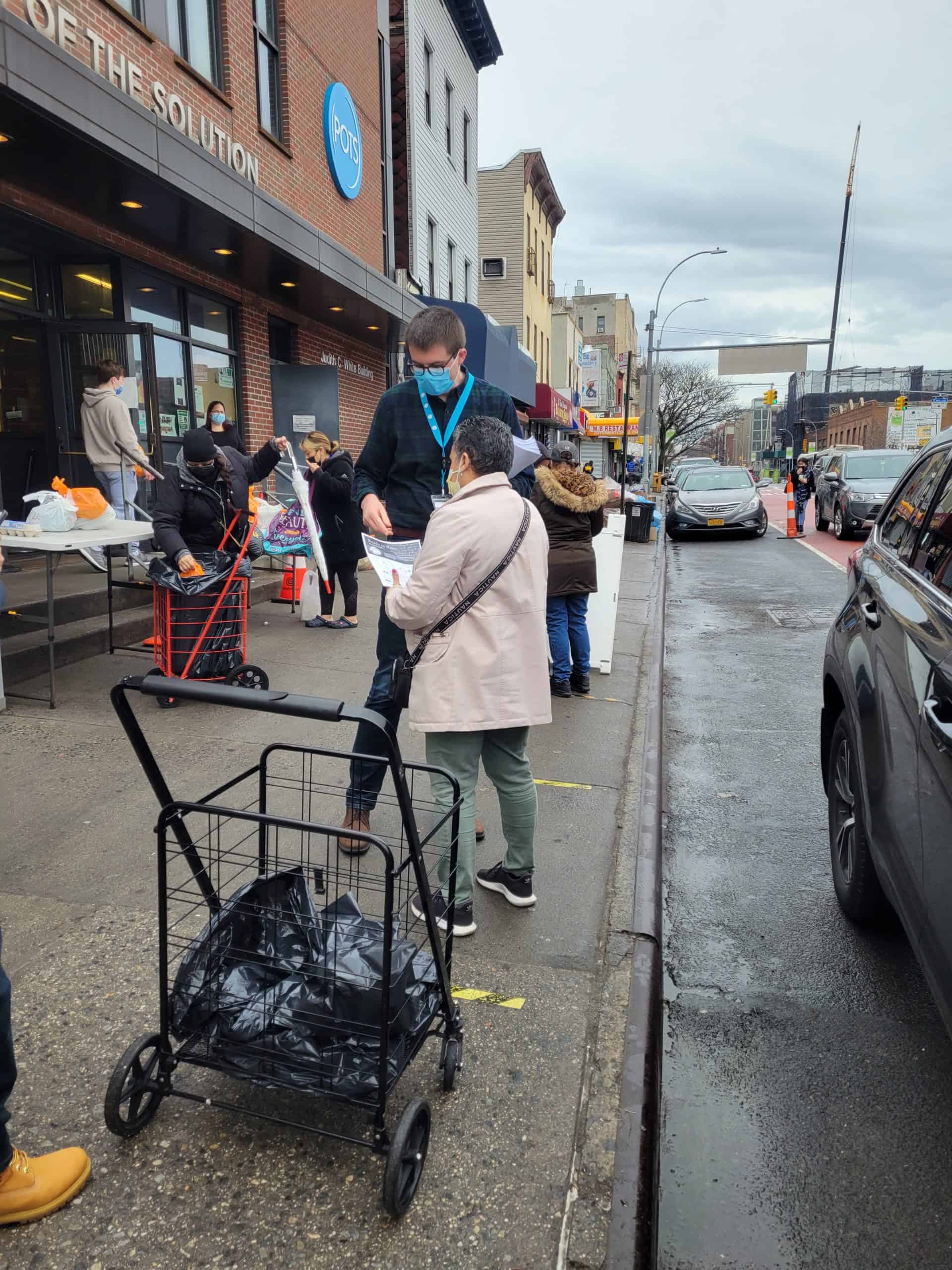Each year, Jesuits are required to go on an eight-day retreat. Generally, a Jesuit will have a handful of hourlong prayer periods meditating over a Scripture passage or a contemplation from the Spiritual Exercises of St. Ignatius. With the exception of communal liturgies and meeting with one’s retreat director, the balance of one’s time is spent in silence, Cell phones and computers are not on the packing list. While my prayer experiences are usually the highlights of my retreat, after a tiring first year of graduate school I was almost most looking forward to these restful in-between hours that are filled with reading, walking, or contemplation (and, of course, napping). Often, I find God speaking to me in these quiet moments as much as my formal prayer periods.
But in all those silent restful hours of this year’s retreat, I found myself ruminating over questions such as “God, where were you in Uvalde or the immigrant caravan in Texas?” When I sat down to read my novel, I could not enjoy the quiet evening view overlooking the towering oak trees but instead only see the extreme heat and persistent drought. “Coolest summer of the rest of my life,” I pessimistically remarked. When a retreat director (who has access to their technology throughout the retreat) prayed for the 50 worshippers killed attending Mass on the Feast of Pentecost, I found myself struggling to pray later that day. I really wanted to turn my phone off airplane mode to check Twitter for the real-time updates and instant commentary. Instead of really praying, I sat in the chapel chewing over whether my thoughts and prayers were really enough and wondering where God could be in the midst of all this.
To my surprise, my prayer—once I finally quieted that non-stop internal dialogue—did not take me to these far-flung places or even to the scenes of Jesus’ life in the Gospels. Instead, God always kept directing my gaze back home to the streets of the Bronx.
Almost a year ago, I moved to New York City’s northernmost borough as part of the inaugural cohort of the new Masters of Arts in Philosophy and Society (MAPS) program at Fordham University, the degree program for Jesuits in First Studies. The particular emphasis of this program is for young Jesuits to develop an appreciation of the contexts of mission and of the human condition. With my Jesuit community rooted in the nation’s poorest congressional district, that means accompanying, learning from, and ultimately loving the poorest of the poor. To facilitate this aim, I volunteer once a week during the school year and full-time during the summer at Part of the Solution (POTS), a non-profit with a suite of comprehensive services dedicated to fighting food insecurity and poverty in the Bronx.
The faces that kept surfacing in my prayer were clients that I met at POTS. A man who recently moved from North Carolina with his elderly father cries that he has no food at home and no money when he finds out that our food pantry for the day has just closed. A middle-aged immigrant mother who lives with her cousin’s family seeks job search assistance so she can “poder que ser algo en vida”—be able to be something in life. Indeed, every day I interact with humans whose suffering and pain are just as acute as some national crises, but whose stories often go long ignored.
The biggest grace of this last year has been learning from my neighbors how they find God in the midst of their own daily struggles. They taught me that they find God not “out there” amorphously in the midst of crisis, but rather loving them, nurturing them, and communicating with them in an intimate relationship. More concretely, this year in the Bronx has taught me that:

God accompanies us in our struggles. A middle-aged Dominican immigrant tells me the difficult story of waiting several years—with her family split between the two countries—to finally get her permission to settle here. As with so many immigrants, her story was marked with poverty, food insecurity, safety risks, and other hazards. With a beaming smile, she proclaimed to me that God was there in a way peculiar to her, pointing the way forward and comforting her. She ultimately found her current job by going totally out of her normal walking route on a whim. But to her, that whim was (and is) God.
God provides for us in our struggles. When a gentleman who regularly chimes off “have a blessed day” upon leaving POTS was heading out, I wished him the same hallmark phrase in return. He turned to me, and said, “indeed, the day is blessed since God sent me you all.” While I can be tempted to write off my (and others’) presence as an answer to someone’s prayer as spiritual wishcasting, who am I to doubt this man’s sincere faith?
God shares our suffering in our struggles. An elderly woman from the neighborhood came into POTS for the first time. Her disability payments were unexpectedly cut off, rendering her family food insecure. She had to ramble the several blocks on a hot Bronx day to get food from our pantry. Though her back pain and exhaustion were evident with only my cursory glance, she warmly smiled as she sat down. After sharing her story, she said, almost casually, that these last few weeks brought her closer to Jesus.
In crises, God is indeed active in the world. When I doomscroll on Twitter instead of praying about the state of the world, I can find myself doubting that. What my neighbors taught me is that God can be most immediately available not “out there” but rather “in here.” I must always turn to prayer before Twitter, even when I might most doubt prayer’s efficacy. I need to relinquish the noisy internal dialogue sparked by push notifications and existential questions and instead open my heart up to God. I have to close my eyes to see that God is redirecting my gaze from the overwhelming complexity of the world’s problems to God’s invitation for me today. In the end, I feel assured knowing that I can only do my piece—and I can find that invitation only when I pray.
-//-
Photo by Daria Nepriakhina 🇺🇦 on Unsplash.


